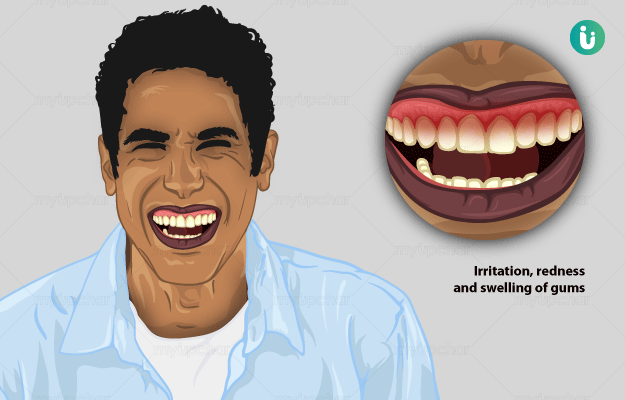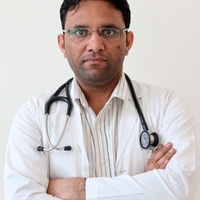Treatment of gum swelling completely depends on its causative factor. If the underlying condition is eliminated, the inflammation will subside itself.
The following methods are employed for reducing gum swelling:
Oral prophylaxis or scaling: The first and foremost professional treatment which doctors offer in case of gum swelling is cleaning of the oral cavity to remove any plaque and calculus. Plaque and calculus harbour bacteria which cause infection and gum swelling.
Endodontic treatment: If the swelling in gums is caused by the transmission of infection from pulp to gum tissue, eradication and obliteration of pulpal infection become the first line of treatment. Your dentist will perform a root canal treatment on the concerned tooth to remove the infection. As soon as the teeth enter into a healing stage, the gum swelling starts to recede.
Surgical excision: In several cases of gum swelling such as in pregnancy-related pyogenic granuloma surgical excision is the preferred treatment protocol. Surgical excision involves the targeted removal of the swollen mass or growth that is responsible for swelling. Makes sure to inform your dentist about the stage of pregnancy you are in before undergoing the procedure - most invasive procedures are done in the second trimester of pregnancy and are considered unsafe in the first and third trimester.
Similarly, in cases of fibrotic growth or benign lesions of gum, your dentist might take a biopsy of the lesion and then remove the mass. Sometimes, the mass is completely excised surgically and then sent for biopsy.
Gingival cysts are also surgically removed by following special techniques for cyst removal.
If there is a nasal blockage caused by a nasal polyp, it can also be removed surgically so that the person can easily breathe from the nose instead of breathing from mouth.
Balanced diet: A balanced diet is recommended if gum swelling is caused by malnutrition or scurvy (vitamin C deficiency). A person suffering from malnutrition-related gingival swelling should eat fruits and vegetables in abundance to replenish the deficient nutrient.
Medications: In cases of severe infection, your doctor might prescribe a few medicines to control microbial growth. The cause of infection is elicited and drugs are given accordingly like antibiotics for bacterial infection, antifungal medicines for candidal infections or antiviral medicines for viral infections. Alternatively, ointments might also be given for localized control of infection.
Alternative drug: For drug-induced gingival enlargement, your doctor might ask you to change the said drug.
Habit breaking appliance and counselling: There are various orthodontic appliances specially designed to promote nasal breathing like an oral screen.
Maintaining good oral hygiene: A good oral hygiene practice will prevent as well as limit the progression of infections and gum swelling. Brush twice daily and floss after every meal. If you have an allergy from a particular toothpaste or mouthwash, stop using them. Finally, try to avoid sticky and sweet foods to prevent dental caries.

 Doctors for Swollen gums
Doctors for Swollen gums  OTC Medicines for Swollen gums
OTC Medicines for Swollen gums













































